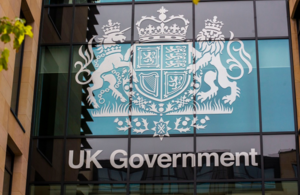Alister Jack responds to November 2020 Labour Market Figures
Press release
Scottish Secretary responds to November 2020 Labour Market Statistics for Scotland

Responding to today’s [10 November 2020] Labour Market Statistics, Scottish Secretary Alister Jack said:
Despite the apparent stability in today’s figures for Scotland, we know there will be further challenges to come over the winter months.
The UK Government continues to take unprecedented action to support jobs. Last week the Chancellor extended the UK Government furlough and self-employed support schemes, alongside an additional £1 billion in Barnett Consequentials for the Scottish Government.
For those looking for work, we are also investing billions as part of our Plan for Jobs, including the recruitment of hundreds of work coaches across Scotland and our £2 billion Kickstart job scheme for young people.
From the start of the pandemic UK Government support has been a lifeline for many Scottish people and businesses, demonstrating the strength of the Union in these difficult times.
Background points
- Many of our communities are living under newly-tightened, temporary restrictions. The UK Government furlough scheme, paying 80 per cent of wages, will run UK-wide until the end of March. The self-employed support scheme has also been extended to the of March and will increase from 55% to 80% of average profits – up to £7,500.
- More than 76,000 businesses in Scotland have benefitted from UK Government loan schemes, worth more than £9.4 billion. Scotland’s hospitality and tourism businesses are benefitting from a VAT cut which will run till March 2021.
- In total, the Scottish Government has been allocated an additional £8.2 billion from the UK Government since March 2020. This is on top of the block grant and in addition to direct UK Government support to people and businesses in Scotland.
- The UK Government is investing billions to help people back into work, including through our £2 billion Kickstart scheme to get young people into jobs. Extra help from work coaches in Jobcentres is helping unemployed people of all ages back into work by focusing on skills.
- The UK Government has provided extra funding for the welfare safety net to help those unable to access other forms of support. These temporary welfare measures include a £20 per week increase for everyone on Universal Credit.
Analysis
Scotland’s key indicators seem to be in a stable position, however, the claimant count rate is now at 7.7% (Oct). This is up from 4.0% pre-lockdown but marginally down from September (-0.1%). We have seen from last month’s furlough figures that over 242,600 employments are paused and around 137,000 self-employed people in Scotland received UK Government support. Scotland unemployment rate at 4.5% is now below that of the UK overall at 4.8%.
The UK overall experienced a somewhat accelerating decrease in employment (-164,000 and its rate fell by 0.6%) over the last three months and over the same period unemployment increased at a faster pace too, with an increase of 243,000 (+0.7%). Over the year, the UK’s employment is now down (-247,000).
Published 10 November 2020

